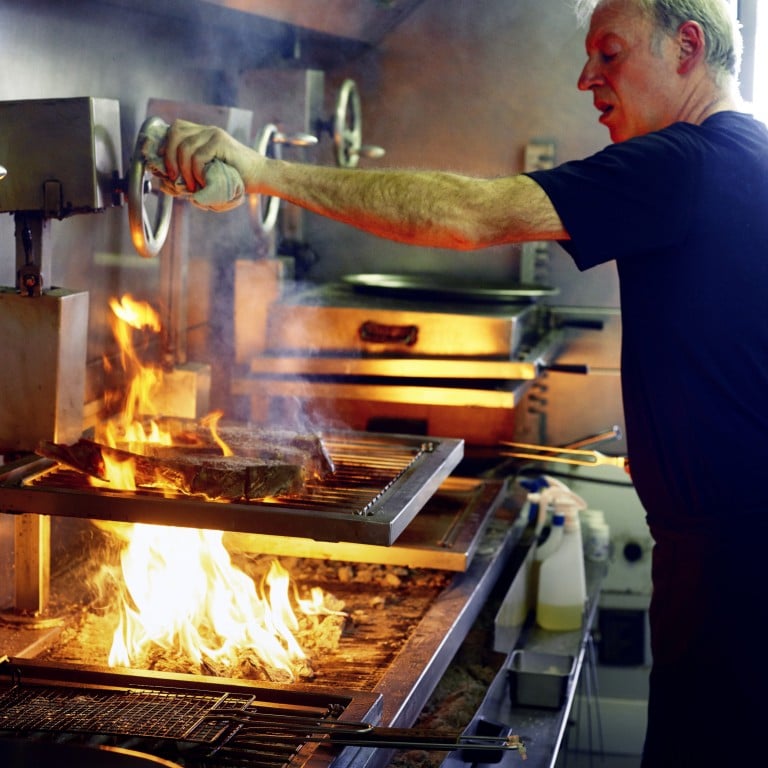Why the world’s top chefs are returning to wood-fired fine dining: from Michelin-starred Willem Hiele to Francis Mallmann, chefs can’t get enough of this risky, back-to-basics cooking method

- For Dave Pynt of Singapore’s World’s 50 Best restaurant Burnt Ends, wood fire cooking is ‘engaging and uncontrollable’ – but that’s what makes it so exciting
- Pynt’s smoked quail egg and ‘beef marmalade’ are his restaurant’s most popular dishes, while his mentor Victor Arguinzoniz has smoked everything from ice cream to caviar
Luxury dining can be many things, but primal is usually not one of them. There is, however, a growing number of top chefs around the world embracing the raw unpredictability of nature by swapping the scientific precision of a standard professional kitchen for a wood-fired live flame.
From veteran Argentine chef Francis Mallmann to Sweden’s Niklas Ekstedt and London’s Tomos Parry, fire-speciality chefs are making wood-fired restaurants some of the hottest tables in town.

For Victor Arguinzoniz of Asador Etxebarri – the Basque village restaurant about an hour from San Sebastian, Spain, that is third on the World’s 50 Best Restaurants list – cooking over fire is a return to tradition, a sense of home.
“People are now looking for traditional flavours again and cooking over fire is an ancestral way of cooking,” he says.
For more complete control of his craft, Arguinzoniz designed his restaurant’s grills himself, complete with pulleys to move them closer or farther from the flames as required. He prepares coals daily from specially selected woods – vine trunks for meat and holm oak for fish, for example. His detailed approach to the process allows him to draw out sublime flavours from seemingly simple, always local, ingredients.
“For me, cooking with fire means being in touch with my origins. It connects me directly with my childhood, with my mother’s and grandmother’s cooking in the farmhouse,” he says.
